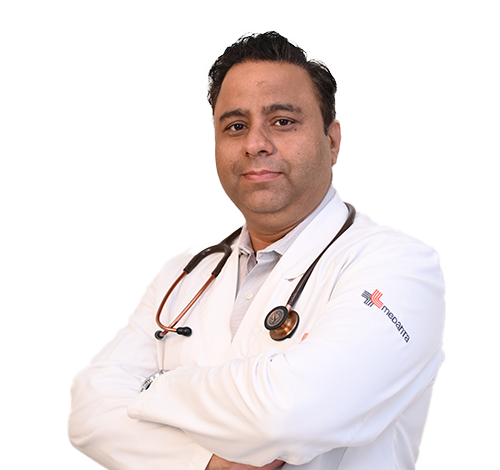Colorectal Cancer: Know the Risks, Spot the Signs, Act Early
Expert Guidance from a Colorectal Cancer Specialist in Lucknow
Colorectal cancer, which includes cancers of the colon and rectum, is often dubbed a “silent killer” because it usually progresses without noticeable symptoms in its early stages. Unfortunately, by the time symptoms become evident, the disease may have already advanced significantly. With rising global and national incidence, especially among younger individuals, it’s more important than ever to raise awareness and promote timely detection and intervention. Consulting a colorectal cancer specialist in Lucknow can make all the difference in early diagnosis and effective treatment.
Why Colorectal Cancer Deserves Immediate Attention
Globally, colorectal cancer ranks as the third most common cancer and is the second leading cause of cancer-related deaths. According to GLOBOCAN 2022, over 1.9 million new cases were diagnosed around the world. In India, colorectal cancer figures among the top five cancers affecting both men and women. While the national incidence rates may appear modest compared to global figures, the concerning rise in cases among people under 50 years makes it a growing public health concern.
Unfortunately, due to the lack of awareness and delayed medical attention, many colorectal cancer cases are diagnosed only when the disease has reached an advanced stage. Seeking timely screening and advice from a colorectal cancer specialist in Lucknow is crucial to improving survival rates and quality of life.
Spotting Early Signs: Listen to Your Body
One of the biggest challenges in detecting colorectal cancer early is the subtlety of its symptoms. Early-stage colorectal cancer often shows no signs at all. However, as the disease progresses, patients may experience persistent changes in bowel habits—such as prolonged constipation, diarrhea, or unusually narrow stools. Blood in the stool, whether bright red or dark, should never be ignored. Abdominal discomfort, unexplained weight loss, fatigue, and weakness may also point to something more serious.
More than 40% of colorectal cancers are discovered only at an advanced or metastatic stage because these early signs are dismissed or misattributed. A simple consultation with a colorectal cancer specialist in Lucknow can help assess these symptoms properly and guide you toward appropriate diagnostic tests.
How Colorectal Cancer is Detected
There are several ways to detect colorectal cancer early. Colonoscopy remains the gold standard—it allows doctors to visualize the colon lining, detect polyps, and even remove them during the same procedure. Other non-invasive methods include the fecal occult blood test (FOBT), which identifies hidden blood in the stool, and the fecal DNA test, which looks for cancerous DNA markers. Imaging techniques like CT colonography, or “virtual colonoscopy,” offer further diagnostic options.
It’s generally recommended that individuals begin regular screening at age 45, or earlier if there is a family history. A colorectal cancer specialist in Lucknow can help determine the most suitable screening plan based on your risk profile and medical history.
Types and Stages of Colorectal Cancer
The majority of colorectal cancers are adenocarcinomas, originating from the glandular cells lining the colon and rectum. Other less common types include carcinoid tumors, gastrointestinal stromal tumors (GISTs), lymphomas, and rare squamous cell carcinomas.
Staging helps in understanding how far the cancer has progressed. Stage 0 (carcinoma in situ) indicates cancer confined to the inner lining. Stage I shows limited spread within the colon wall. Stage II signifies deeper invasion without lymph node involvement. Stage III involves lymph nodes, and Stage IV indicates spread to distant organs like the liver or lungs. Accurate staging is essential for formulating an effective treatment plan, and this is best done under the guidance of a skilled colorectal cancer specialist in Lucknow.
Treatment Options: Personalized and Stage-Based
Treatment varies by stage. In early-stage disease (Stage 0 or I), surgical removal of polyps or the affected portion of the colon may be sufficient. Stage II and III cancers typically require surgery followed by chemotherapy, especially if certain high-risk features are present. In rectal cancers, radiation therapy may be added.
Stage IV or metastatic colorectal cancer is more complex. Treatment includes systemic chemotherapy regimens such as FOLFOX or FOLFIRI. Targeted therapies like Bevacizumab (anti-angiogenesis) or EGFR inhibitors (e.g., Cetuximab) are used depending on the tumor’s genetic profile. Immunotherapy with checkpoint inhibitors such as Pembrolizumab or Nivolumab has shown promise in tumors with high microsatellite instability (MSI-H) or mismatch repair deficiency (dMMR). In some cases, even limited liver or lung metastases can be surgically removed for potential long-term survival.
The approach must be tailored to the patient’s age, overall health, tumor genetics, and stage of disease. This personalized treatment roadmap is best developed with the expertise of a colorectal cancer specialist in Lucknow.
The Promise of Modern Therapies
The future of colorectal cancer care is evolving with advances in precision medicine. Targeted therapies are helping control disease in cases that were previously considered resistant to standard treatment. Immunotherapy is proving particularly effective in select genetic subtypes, improving survival outcomes significantly. Trials like KEYNOTE-177 have demonstrated that Pembrolizumab can significantly delay disease progression in certain patients compared to traditional chemotherapy.
With cutting-edge treatments now accessible, patients have more options and hope than ever before. Early molecular testing is critical, and your colorectal cancer specialist in Lucknow will guide you through the right diagnostic and therapeutic steps.
Prevention Starts with You
Thankfully, many cases of colorectal cancer are preventable. A diet rich in fruits, vegetables, and fiber; regular physical activity; maintaining a healthy weight; and avoiding tobacco and excessive alcohol can dramatically reduce your risk. Regular screenings, starting at the recommended age, and genetic testing when appropriate, play a key role in early detection and prevention.
Final Word: Awareness Can Save Lives
Colorectal cancer is no longer a death sentence when detected early and treated appropriately. Yet too many lives are lost due to delay and denial. Let’s break the silence surrounding bowel health. Start conversations, listen to your body, and most importantly—get screened. If you or your loved one needs expert advice, risk assessment, or treatment, don’t wait. Reach out to a trusted colorectal cancer specialist in Lucknow and take control of your health today.
A small step today can prevent a major health crisis tomorrow.
🩺 Book your colorectal health consultation now with a leading colorectal cancer specialist in Lucknow.
Your future self will thank you.












